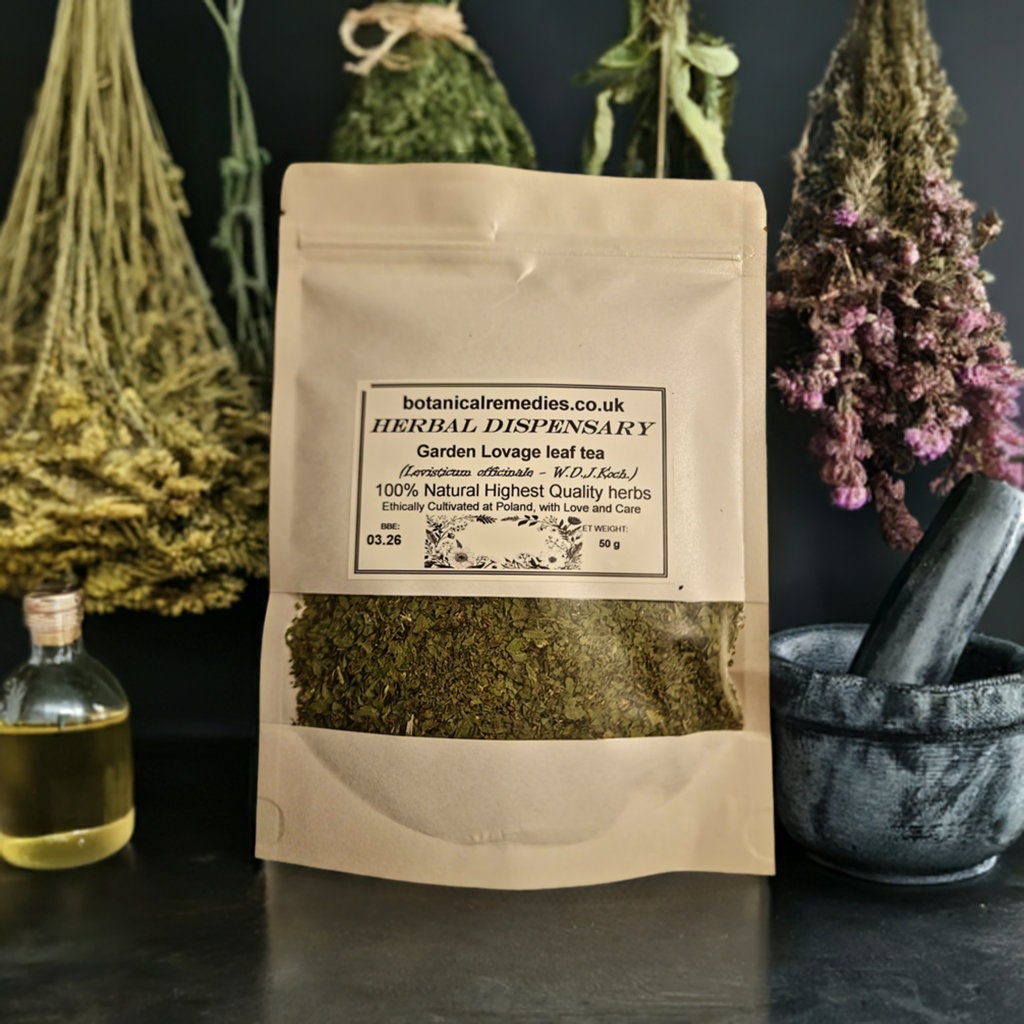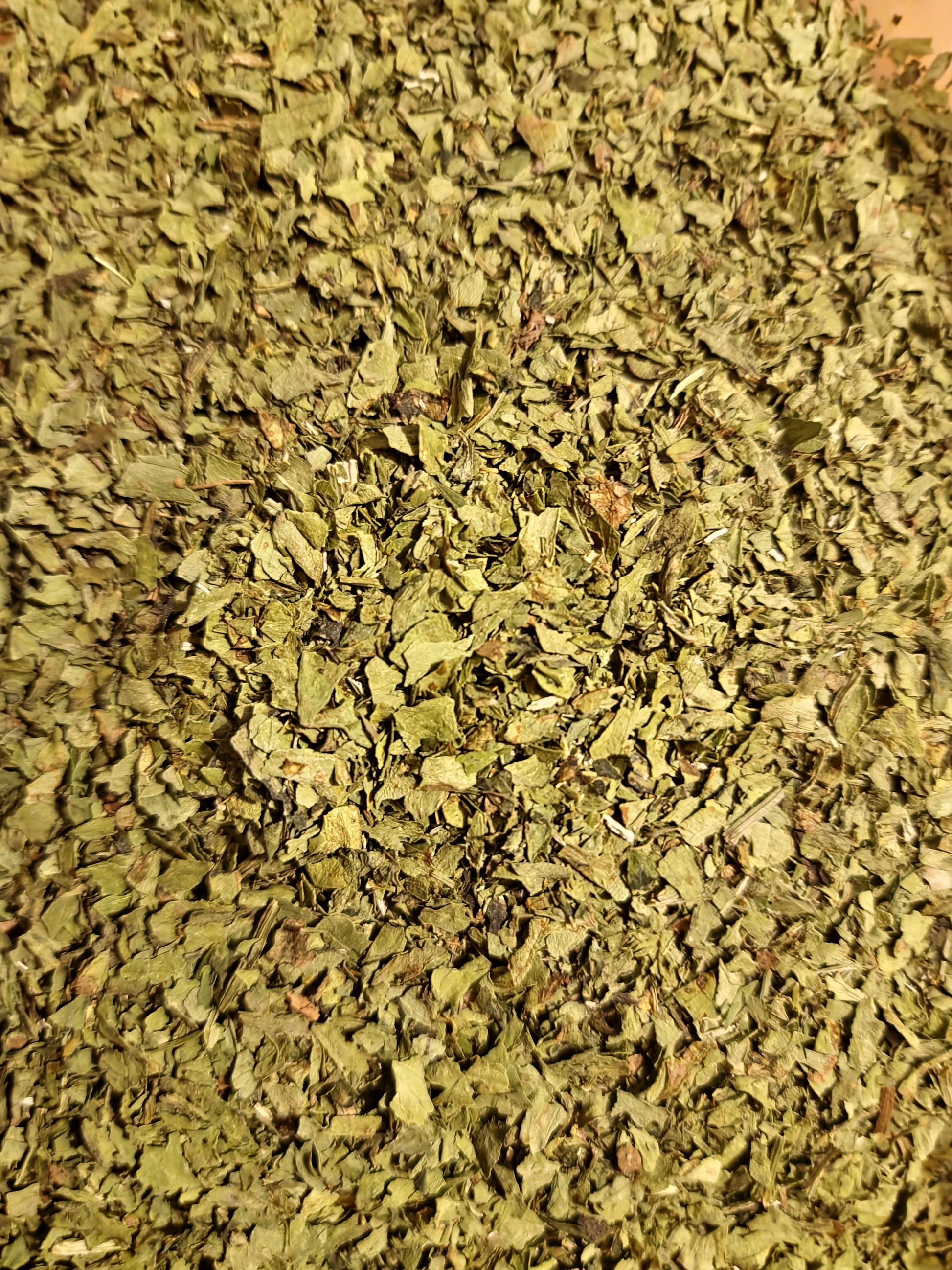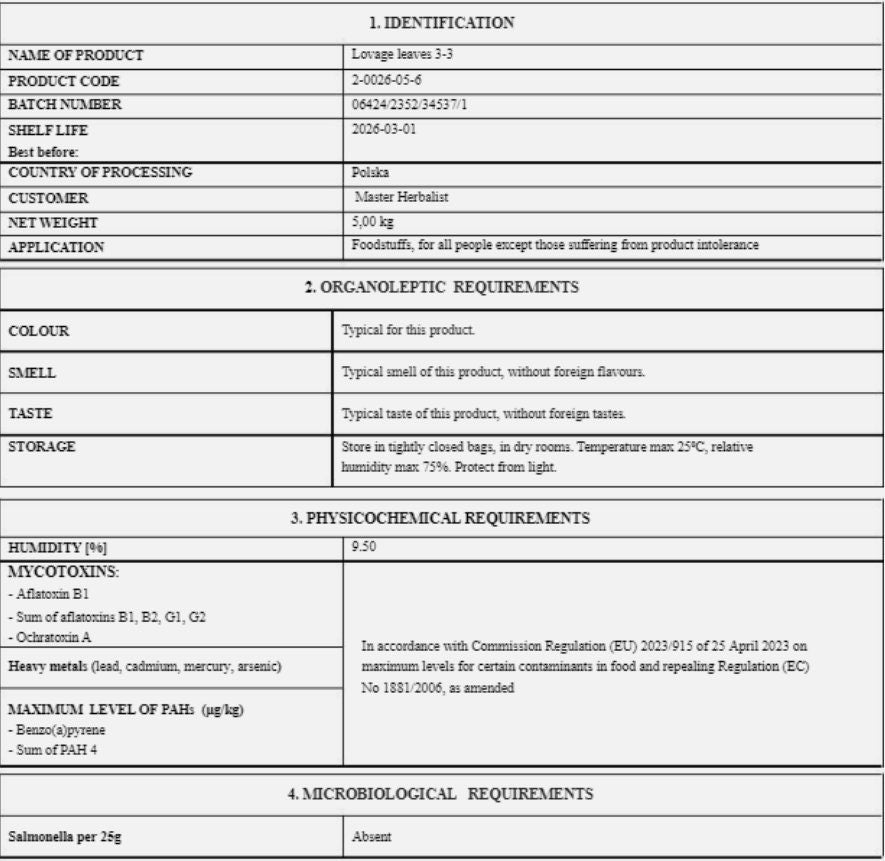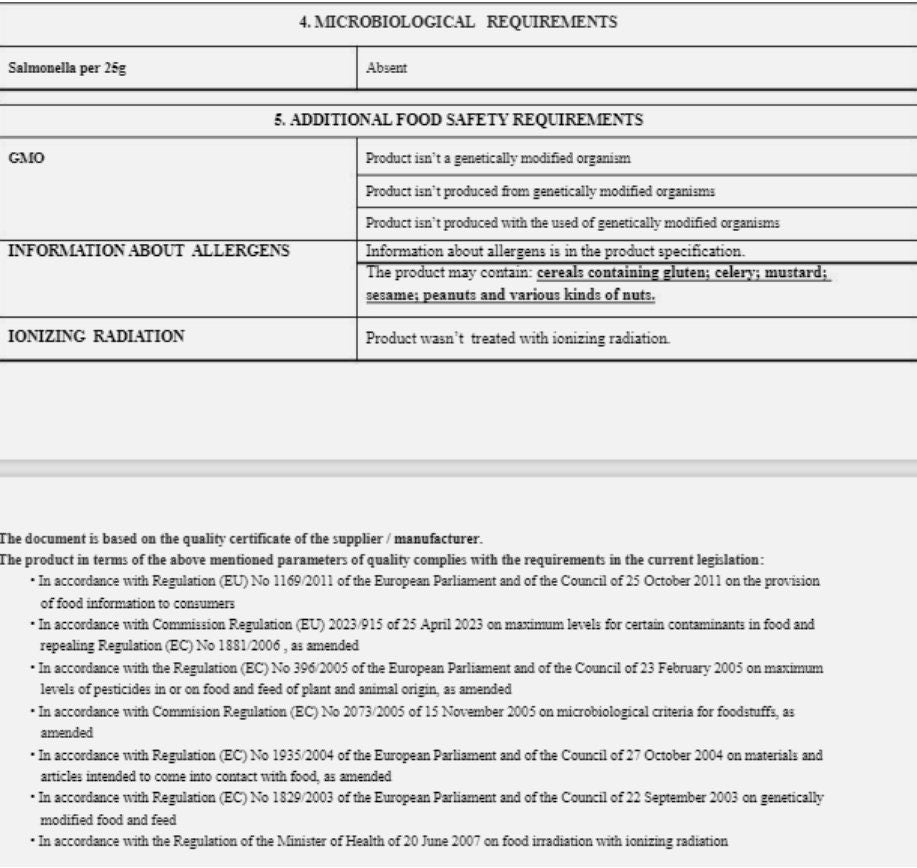Botanical remedies - Herbal Dispensary
Lovage leaf tea (Levisticum officinale - W.D.J.Koch.) Lab-proven Quality and Purity
Lovage leaf tea (Levisticum officinale - W.D.J.Koch.) Lab-proven Quality and Purity
Couldn't load pickup availability
Garden lovage (Levisticum officinale - W.D.J.Koch.) also known as Lovage Root, False Celery, Du Huo Cao, Lubczyk ogrodowy, used as a savoury flavouring in salads, soups, stews etc, imparting a yeasty/celery flavour also a tea is made from the dried leaves. A strong savoury flavour, it tastes more like a broth. Garden lovage Lovage has been used for centuries. The herb’s medicinal and therapeutic properties have been noted by ancient Greek and Roman healers.
The emperor Charlemagne was reported to like the sight of lovage so much that he had it planted all around his estates.
Midwives in the Middle Ages held lovage root in high regard. It was used as a medium-strength uterine stimulant and pain killer before, during, and post pregnancy.
In 1597, the herbalist, John Gerard considered lovage to be one of the greatest medicines of his day and used it to treat jaundice, childhood fevers, and colic.
The 17th century English herbalist, Culpeper said, “ It opens, cures, and digests humours, and mightily provokes women’s courses and urine…”
In the 1800’s a blend of lovage, tansy, and Yarrow was used to treat stomach disorders.
Lovage has also been used to make love potions.
In Britain, an alcoholic cordial is made from lovage that is traditionally mixed with brandy as a winter drink. The typical recipe is 2 parts lovage to 1 part brandy.
Lovage is used as a fragrance in cosmetics and soaps.
The name “lovage” is from “love-ache”, ache being a medieval name for parsley. Levisticum is thought to be a corruption of an earlier Latin Ligusticum, which means “of Liguria” (northwest Italy) where the herb was known to grow. Both names are used today for different but closely related genera, Levisticum for what is commonly called lovage and Ligusticum for what is commonly called Scots lovage.
Suggested Use: It can be used for herbal tea 1-2 teaspoon to cup of boiling water, step for 10-20 minutes, strain and drink. Garden lovage has also other uses, research beneficial uses of this herb or consult an Herbalist as to how this product can benefit you.
Contraindications: Considered safe, it can increase sensitivity to the sun if you use too high a dose for too long.
Typical Ingredients: 100% pure Botanical, absolutely nothing added, dried Garden lovage leaf.
Vegetarian/Vegan Suitability: Suitable for Vegetarians and Vegans
Wild grown/Organic Cultivated/Eco cultivated/Cultivated: Cultivated
Country of origin: Poland
Packaging: All products are hand packed in resalable paper bags to ensure maximum freshness
Quality assured
Share
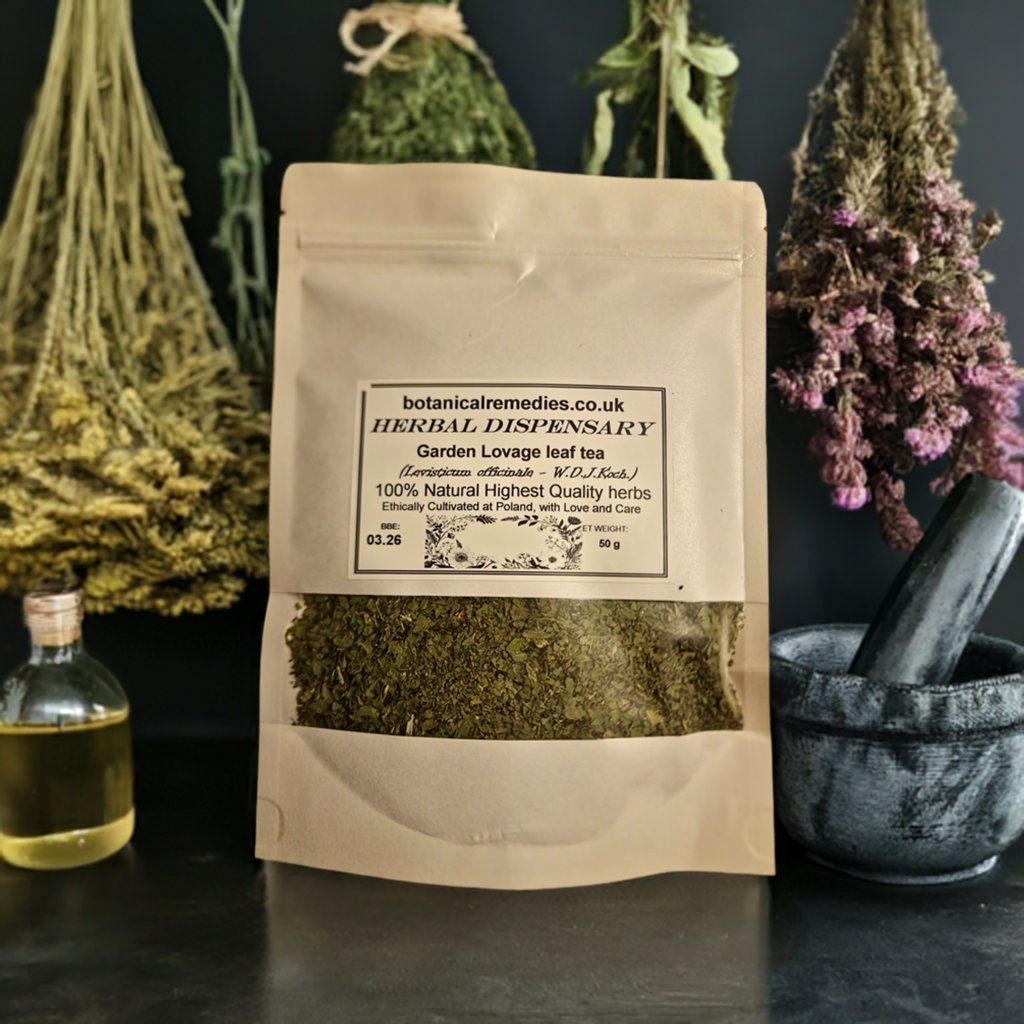
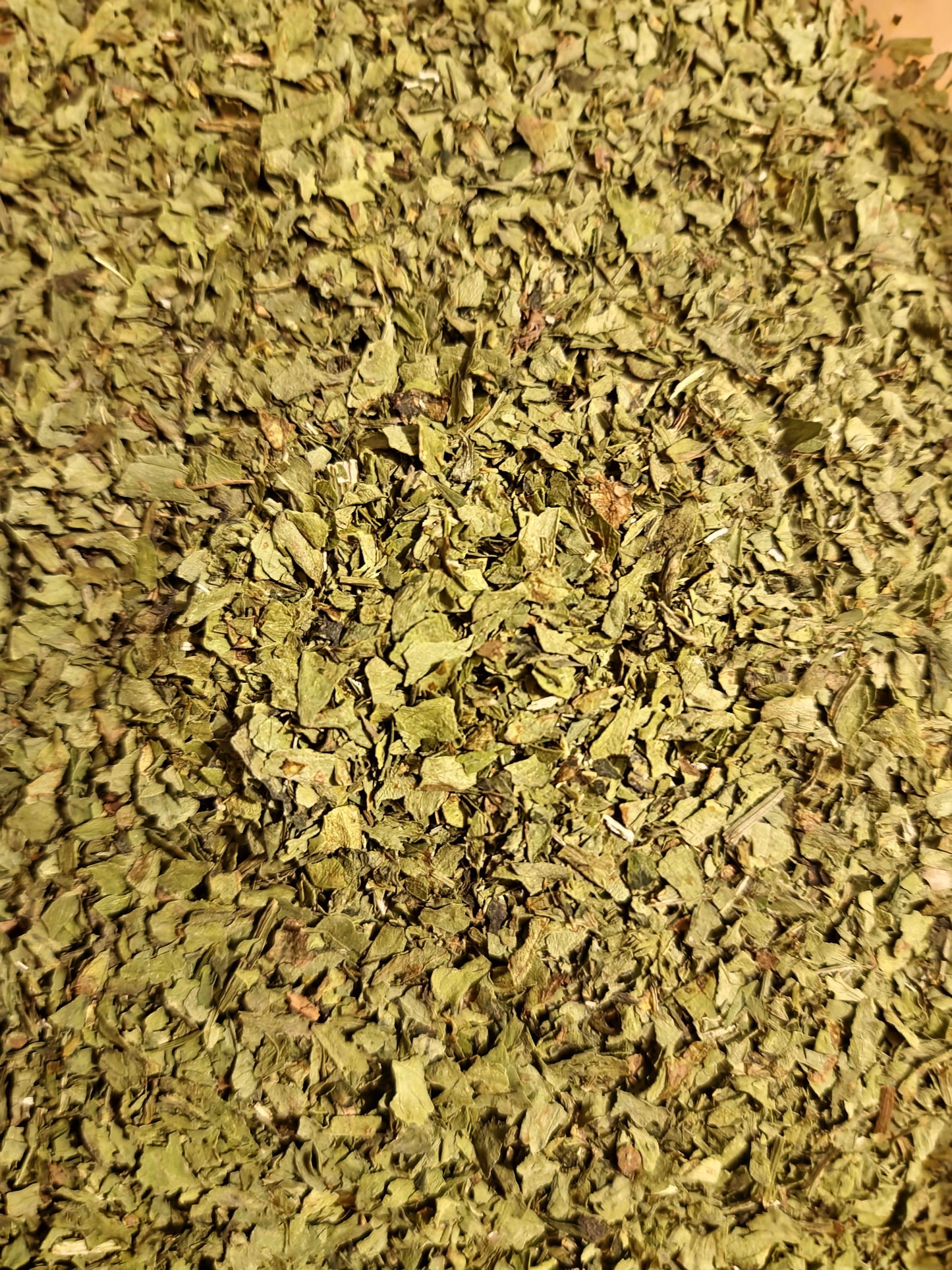
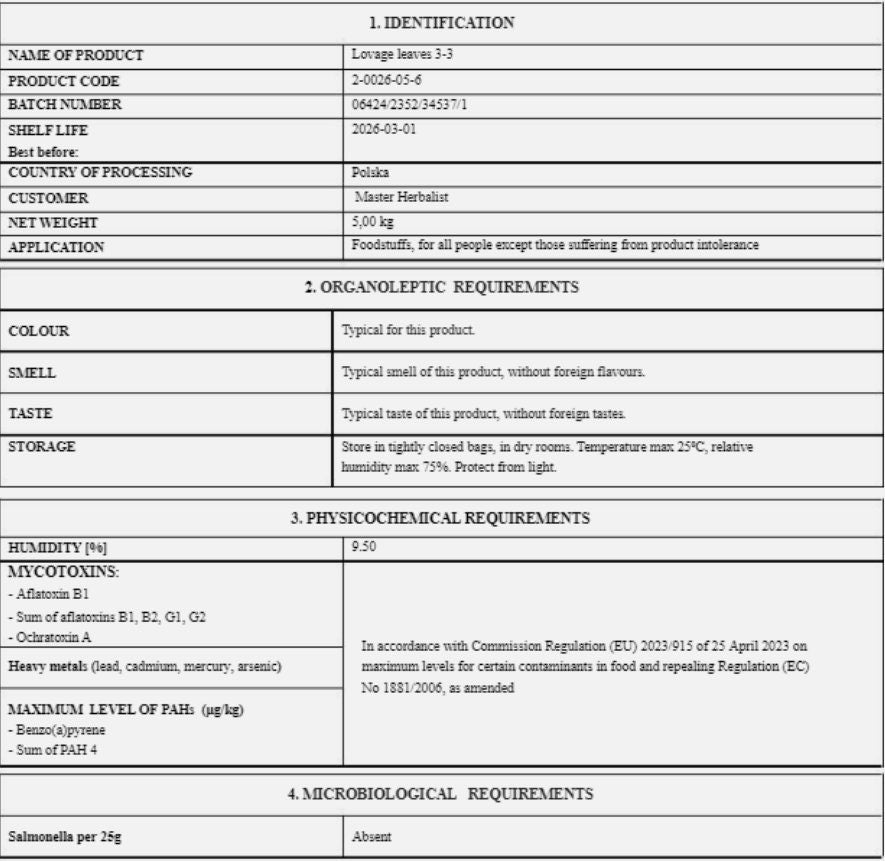
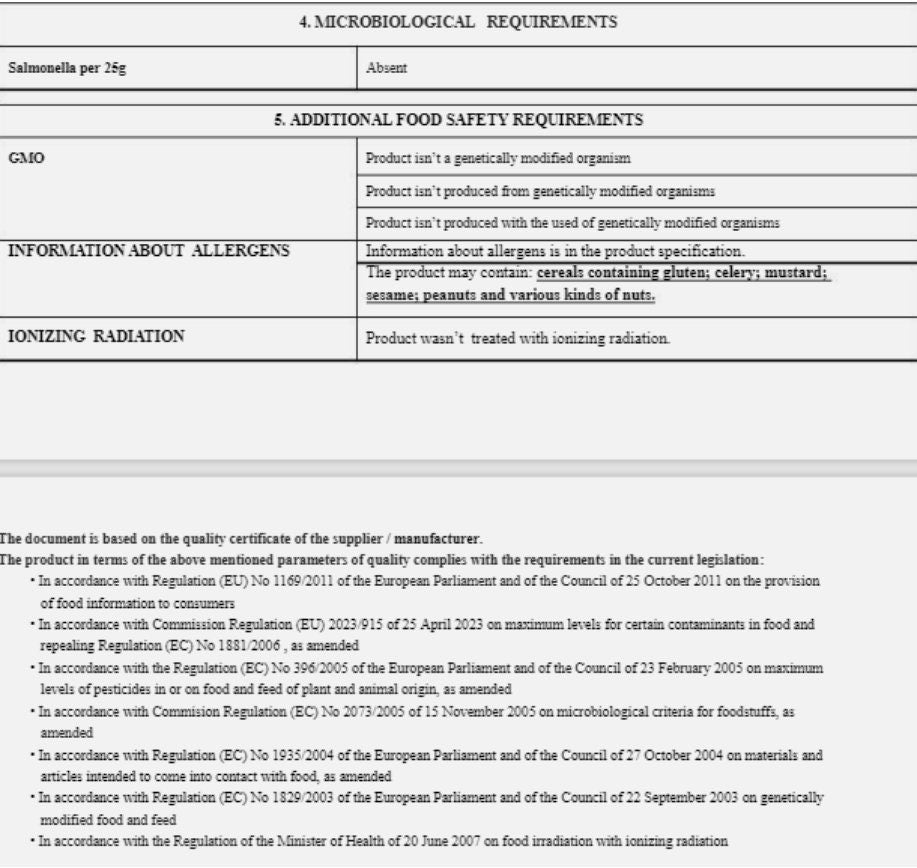
Perfect Item. Fast Delivery. Fully Recommended. Thank You !
Fast delivery and a great quality item.
All great, Fast delivery. Thank you.
Great quality product and fast delivery, recommended
Fast and good













